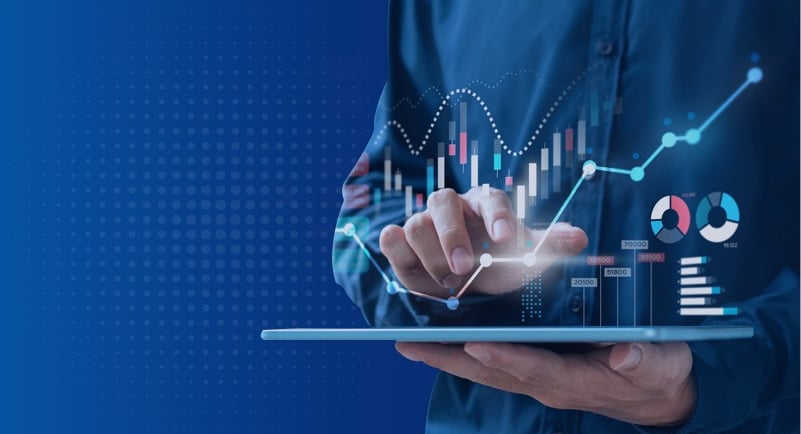IT Trends 2025: Emerging Technologies Every Professional Must Know
Stay ahead in your career with the top IT trends of 2025. Discover emerging technologies shaping the future and learn how to adapt for success
Mike
6/5/20253 min read


🌐 Introduction
The IT landscape is evolving at an unprecedented pace, with 2025 marking a pivotal year for technological transformation. From artificial intelligence becoming deeply integrated into enterprise operations to quantum computing moving from research labs to practical applications, IT professionals must stay ahead of these trends to remain competitive and valuable in their careers.
This comprehensive guide explores the most significant IT trends shaping 2025, providing actionable insights for professionals looking to future-proof their skills and advance their careers in an increasingly complex technological ecosystem.
🤖 Artificial Intelligence and Machine Learning Integration
Enterprise AI Adoption Acceleration
AI integration has moved beyond experimental phases into core business operations. Organizations are implementing AI-driven solutions across:
🛡 Automated code review and testing – AI tools now identify security vulnerabilities and suggest optimizations
⚙ Intelligent infrastructure management – Predictive scaling and automated incident resolution
💬 Customer service automation – Advanced chatbots handling complex support scenarios
📊 Data analysis and decision making – Real-time insights driving business strategy
Key Skills for AI Integration
Technical Competencies
🐍 Python and R for data science applications
🔧 TensorFlow and PyTorch framework proficiency
🔄 MLOps pipeline development and management
🧠 AI ethics and bias detection methodologies
Business Integration Skills
💹 Understanding AI ROI measurement
🤝 Cross-functional collaboration with non-technical teams
⚠ Risk assessment for AI implementations
📜 Compliance with AI governance frameworks
Career Impact and Opportunities
AI integration creates new role categories:
🖇 AI Integration Specialists
🚀 ML Operations Engineers
⚖ AI Ethics Consultants
💬 Conversational AI Developers
💰 Average salary increases for AI-skilled professionals range from 15-25% above traditional IT roles, with specialized positions commanding even higher premiums.
🖥 Edge Computing and Distributed Architecture
The Shift from Cloud-First to Edge-First
Edge computing addresses latency, bandwidth, and privacy concerns by processing data closer to its source. Applications include:
📡 IoT device management
⚡ Content delivery optimization
🔒 Privacy-compliant data processing
🚗 Autonomous vehicle support
Infrastructure Requirements
Technical Architecture
📦 Containerization with Kubernetes at the edge
🔄 Microservices designed for distributed deployment
🔗 API gateways optimized for edge environments
☁ Hybrid cloud-edge orchestration platforms
Security Considerations
🛡 Zero-trust network architecture
👀 Endpoint detection and response (EDR)
🧩 Distributed identity and access management
🔐 Secure boot and hardware-based security
Skills for Edge Computing Success
🐳 Docker & Kubernetes orchestration
🔒 Network security & VPN management
📂 Distributed systems design
📶 5G network integration and IoT security
⚛ Quantum Computing Readiness
From Theory to Practical Implementation
Quantum computing impacts:
🔑 Cryptography and security
📦 Optimization problems
💰 Financial modeling
💊 Drug discovery
Preparing for Quantum Impact
Immediate Steps
🔒 Learn quantum-safe cryptography
🛡 Evaluate current security
📘 Learn quantum programming basics
📰 Stay updated on hardware advances
Career Opportunities
👨💻 Quantum Software Engineers
🔐 Quantum Security Specialists
🏗 Quantum Systems Architects
🔬 Quantum Research Engineers
🌱 Sustainability in Technology
Green IT Initiatives
⚡ Energy-efficient data centers
🌍 Carbon-neutral cloud services
📜 Sustainable software development
🔄 Circular economy hardware practices
Skills for Sustainable IT
📏 Energy monitoring tools
🌱 Green architecture design
📊 ESG reporting
💰 Cost-benefit analysis for green initiatives
🔐 Cybersecurity Evolution
Zero Trust Architecture
🆔 Identity-centric security
🔲 Microsegmentation
🔑 Least privilege access
📈 Behavioral analytics
Emerging Security Challenges
🤖 AI-powered cyber attacks
🔗 Supply chain vulnerabilities
☁ Cloud-native security
📡 IoT security
In-Demand Skills
☁ Cloud security
🛠 DevSecOps
🕵 Incident response
📜 Compliance management
🛠 Low-Code/No-Code Platform Expansion
Benefits
⚙ Business process automation
📊 Data integration
👥 Customer-facing applications
🛠 Internal tools
Skills for the Low-Code Era
🔌 API development
🗄 Database design
🔒 Security in low-code apps
🎯 Project management for rapid cycles
📶 5G and Advanced Connectivity
Applications
🎮 Ultra-low latency gaming
🏙 Smart cities
📱 Enhanced mobile experiences
🧩 Network slicing
Career Roles
🏗 5G Network Engineers
🛡 Network Security Specialists
🌐 IoT Solutions Architects
⚙ Edge Computing Engineers
🥽 Extended Reality (XR) Applications
Use Cases
🏢 Remote collaboration
🎓 Immersive training
🏭 Industrial applications
🛍 Customer experience
Skills
🎨 3D modeling
🖥 Spatial computing
🧠 Computer vision
✋ Haptic feedback
⛓ Blockchain and Distributed Ledger Technologies
Enterprise Use Cases
🚚 Supply chain transparency
🆔 Digital identity management
📜 Smart contracts
🎟 Digital asset management
Career Paths
👨💻 Blockchain Developers
🏗 Blockchain Architects
💱 DeFi Engineers
🛡 Blockchain Security Specialists
📚 Skills Development Strategy for 2025
Priority Skills
☁ Cloud architecture
🤖 AI/ML integration
🔐 Cybersecurity
🖥 Edge computing
📊 Data engineering
Soft Skills
🤝 Collaboration
🌀 Adaptability
🧠 Strategic thinking
⚖ Ethical decision-making
🏭 Industry-Specific Trends
Healthcare IT
💻 Telemedicine platforms
🧠 AI diagnostics
🔗 EHR interoperability
Financial Services Technology
🔓 Open banking
💱 Crypto integration
📜 RegTech solutions
Manufacturing IT
🛠 Industrial IoT
🔮 Predictive maintenance
🏭 Digital twins
💰 Salary and Career Progression Trends
High-Growth Premiums
🤖 AI/ML specialists: +20-30%
🔐 Cybersecurity: +15-25%
☁ Cloud architects: +15-20%
🚀 Preparing for Future Disruptions
Strategies
🧩 Diversify skills
📊 Monitor trends
🧠 Build resilience
💡 Foster innovation
🏁 Conclusion
The IT landscape of 2025 presents both tremendous opportunities and significant challenges for technology professionals. Success requires a strategic approach to skill development, focusing on high-impact technologies while maintaining adaptability for future changes.
The most successful IT professionals will combine deep technical expertise with strong business acumen, ethical awareness, and collaborative skills. By staying informed, investing in continuous learning, and building diverse skill portfolios, professionals can thrive in this rapidly evolving ecosystem.
Explore Expert Tips For Job Seekers, Recruiters and AI Tools To Make You Job Ready
Insights
gET tIPS
© 2025. All rights reserved. Powered by Irtiqa Hub


